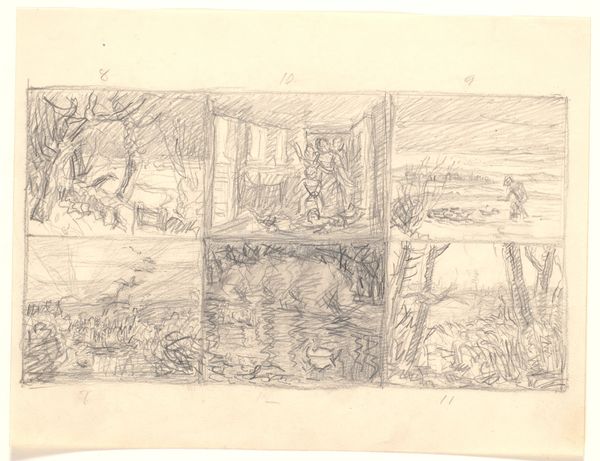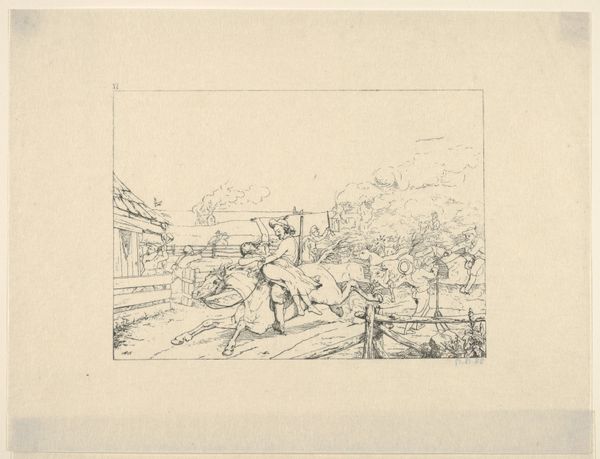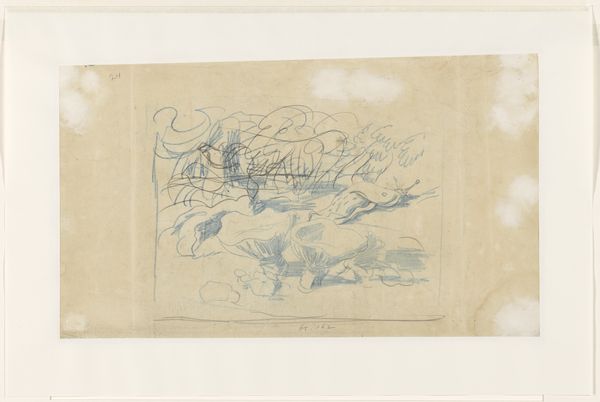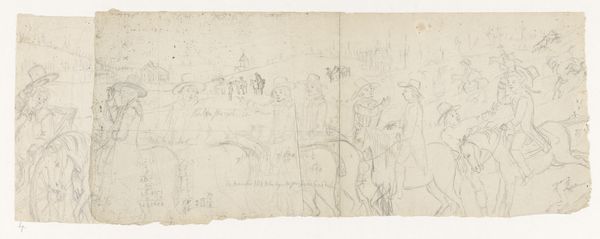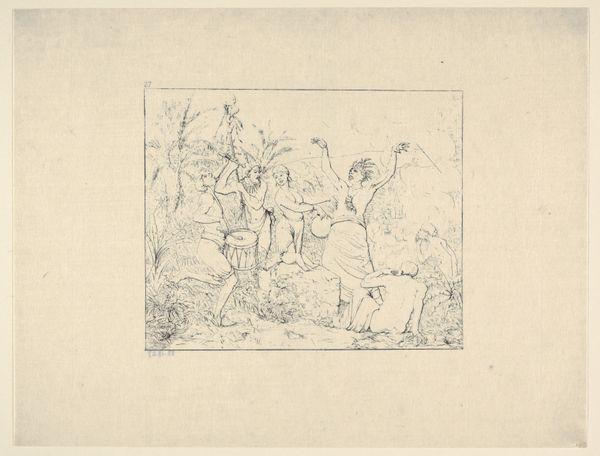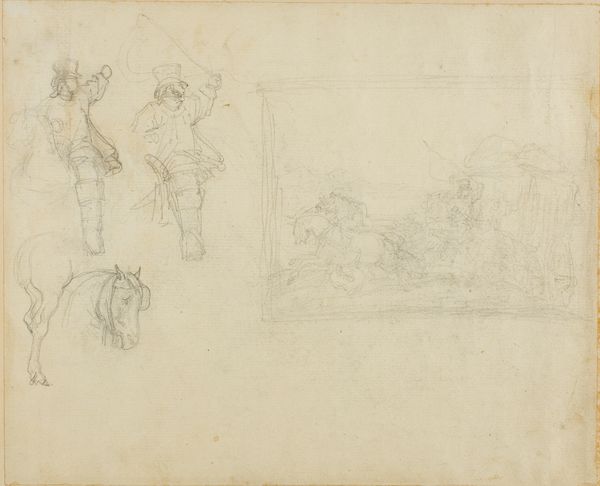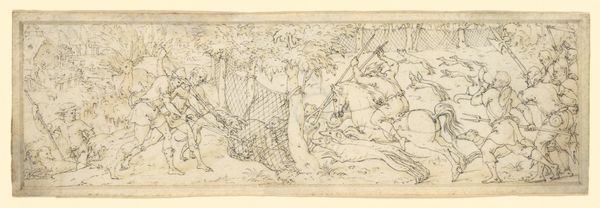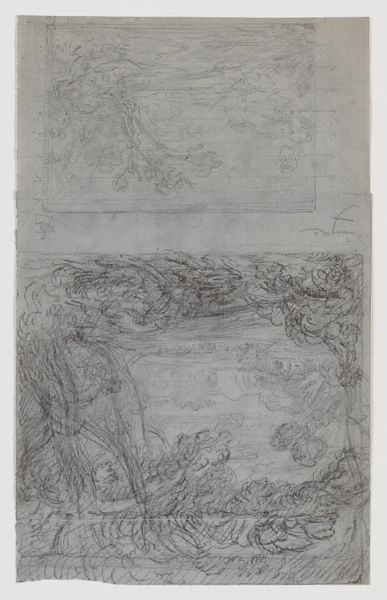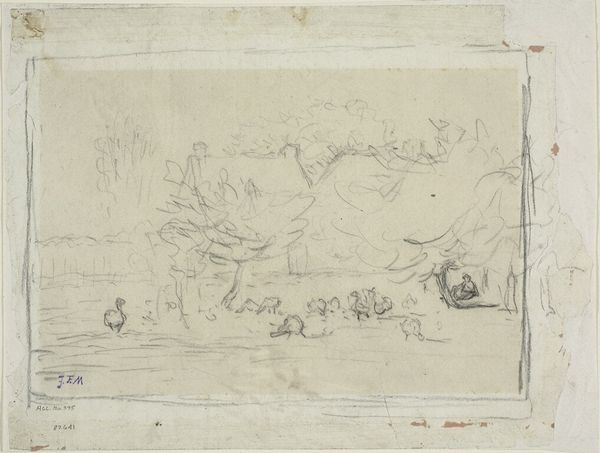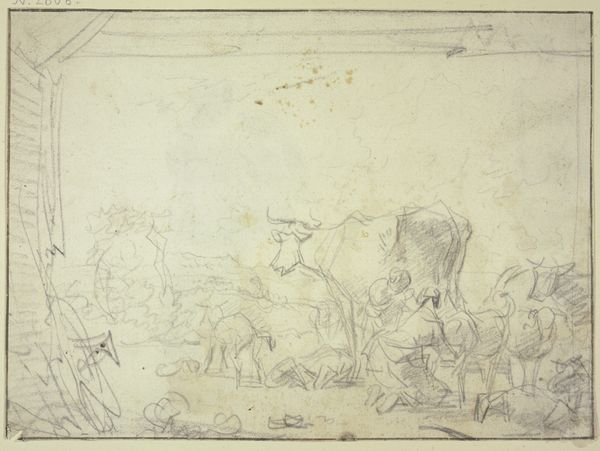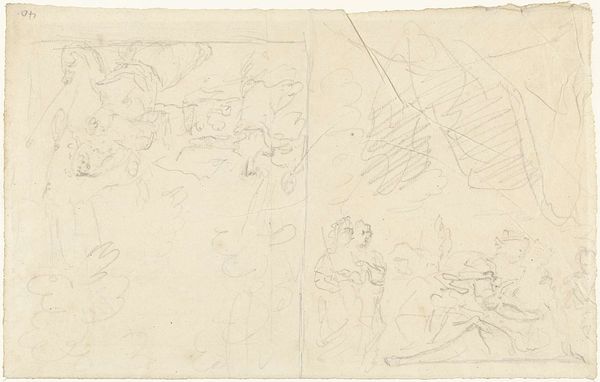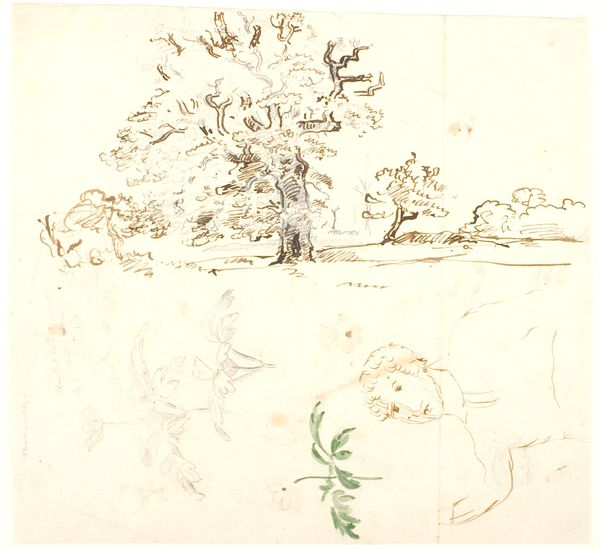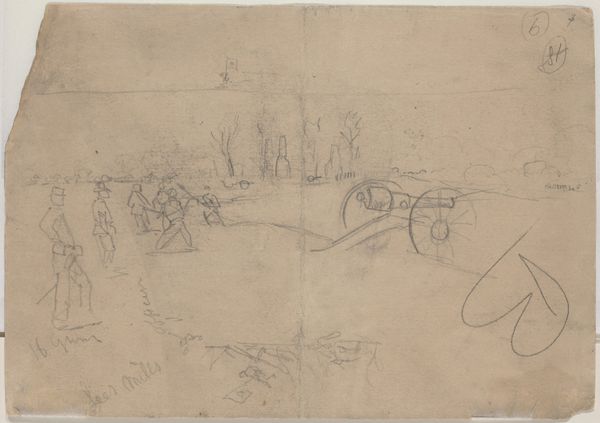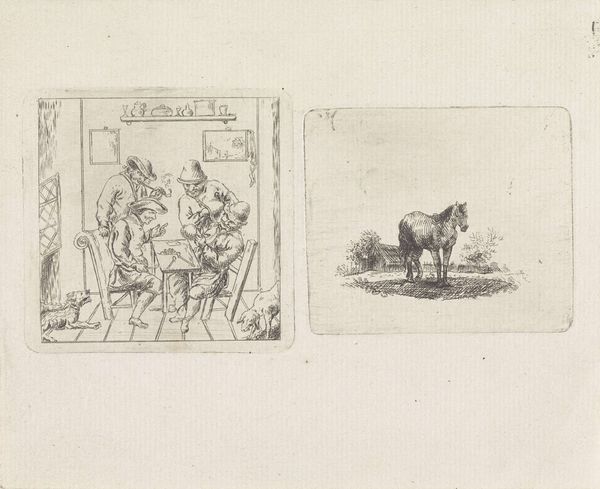
drawing, paper, pencil
#
landscape illustration sketch
#
drawing
#
pen illustration
#
pen sketch
#
landscape
#
paper
#
personal sketchbook
#
ink drawing experimentation
#
sketch
#
pen-ink sketch
#
pencil
#
pen work
#
sketchbook drawing
#
storyboard and sketchbook work
#
sketchbook art
#
realism
Dimensions: 209 mm (height) x 275 mm (width) (bladmaal)
Editor: This is "Skitseblad med 6 skitser til \"Den grimme ælling,"' or "Sheet of Sketches with 6 Sketches for 'The Ugly Duckling,'" created by Fritz Syberg in 1928, using pen, pencil, and ink on paper. The sketches seem like a storyboard; they give off a fairytale-like mood. How do you interpret this work? Curator: Seeing these sketches, I immediately think about the power dynamics inherent in storytelling, particularly children's stories like "The Ugly Duckling." Syberg's sketches offer a glimpse into the process of visually constructing this narrative. Where do you see potential areas of societal critique or engagement within the original fairytale reflected in these storyboards? Editor: I suppose that the sketch showing a woman inside what may be her home speaks to themes of social alienation present in the Ugly Duckling story? I wonder how Syberg thought about social commentary at the time. Curator: Absolutely. And consider Syberg's context – a Denmark grappling with social reforms and shifting class structures. Do you think these sketches might also offer commentary on societal expectations and the pressures to conform, using the fairytale as a lens? How can art amplify marginalized voices? Editor: That’s an interesting point. I see how these seemingly simple sketches can reflect broader issues related to belonging and social exclusion. Curator: Precisely. These sketches are a reminder that art, even in its most preliminary form, can engage with critical social and political issues, even unconsciously on the part of the artist. I think I better understand how to situate storytelling within this kind of intersectional narrative, considering identity, gender, race, and politics. Editor: This was really helpful! I understand Syberg's work much better now.
Comments
No comments
Be the first to comment and join the conversation on the ultimate creative platform.
